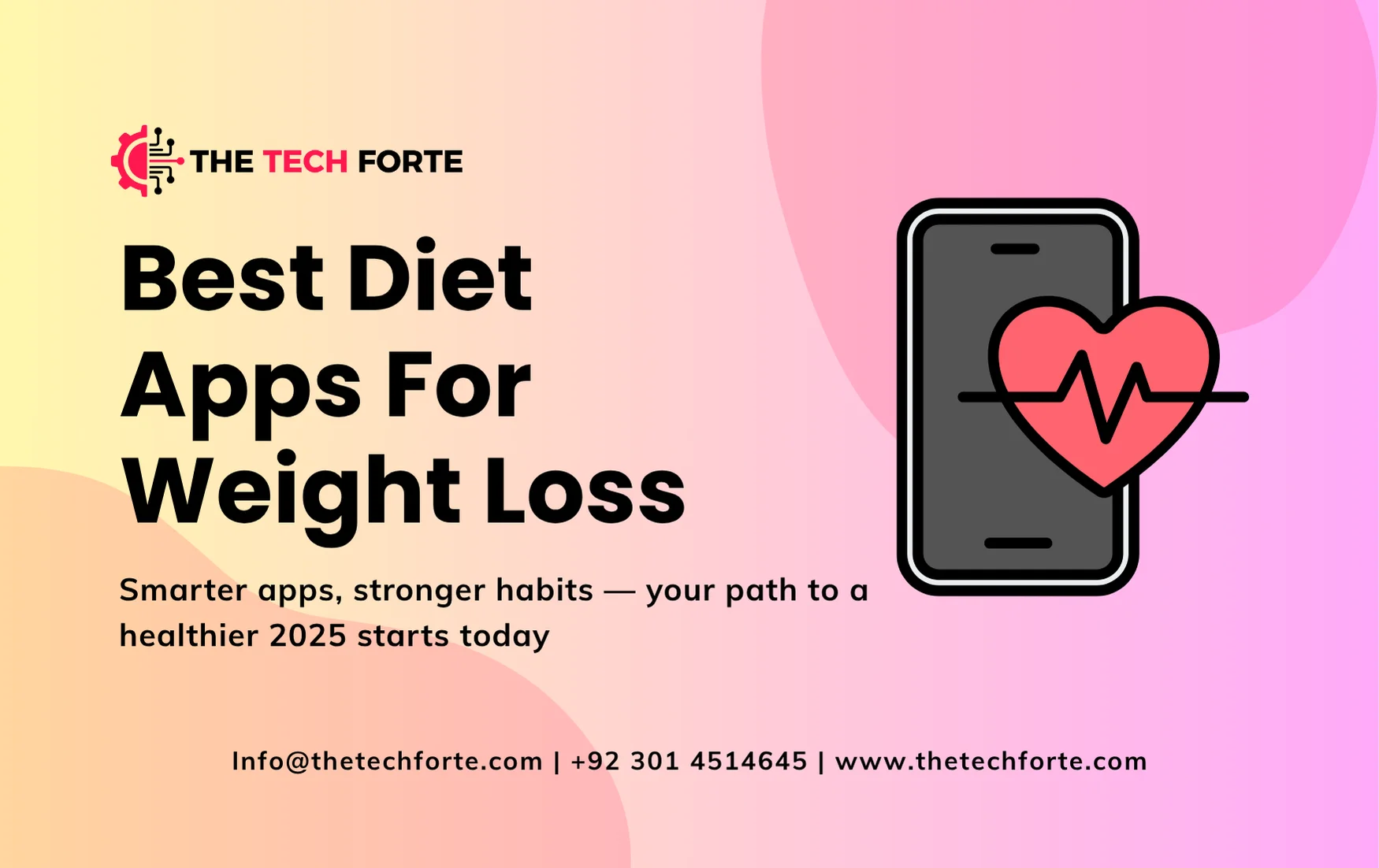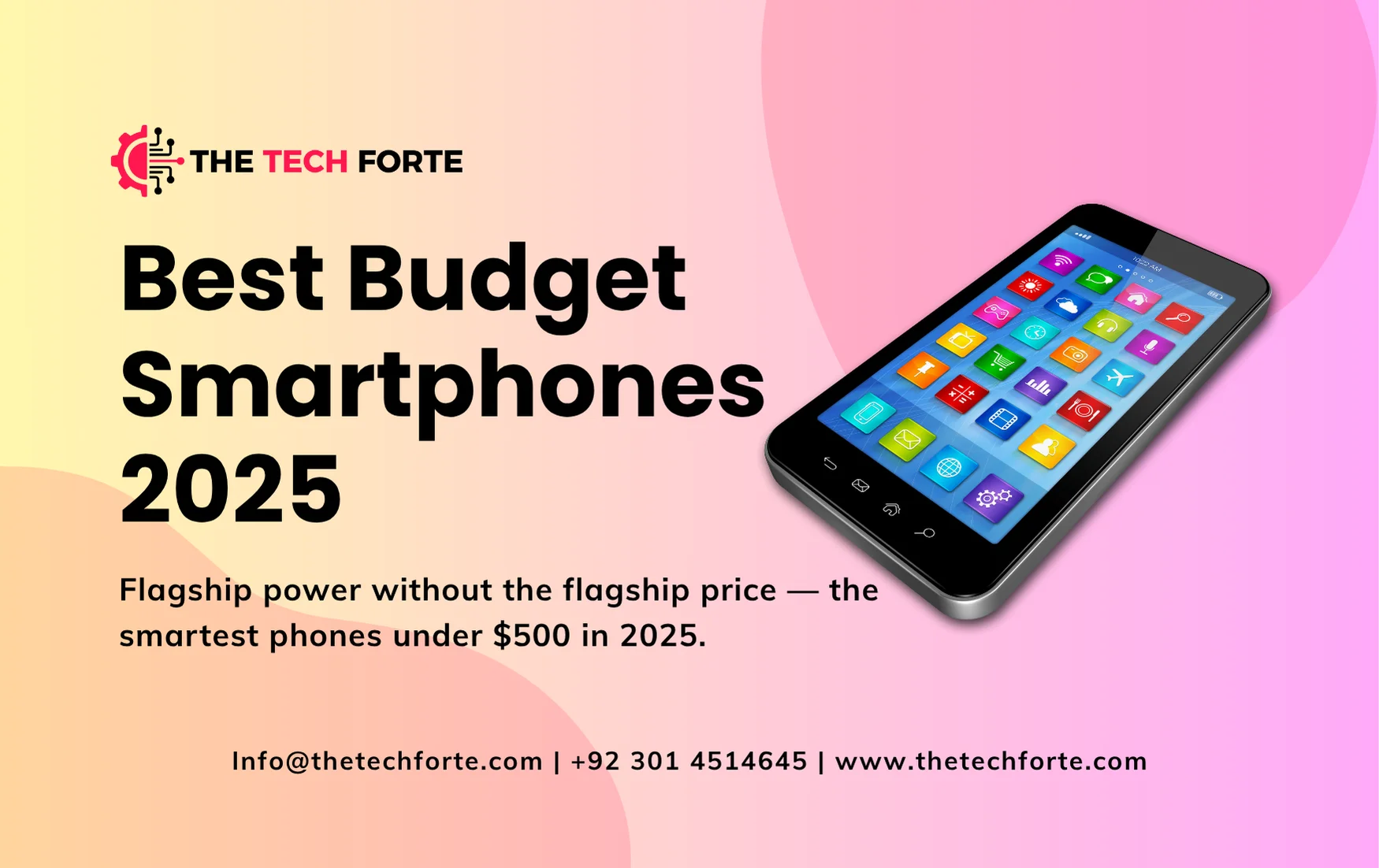
Best Diet Apps for Weight Loss in 2025
Five years ago, tracking calories required writing down figures in a journal. Today, your phone can record your exercises, examine your meals, and even recommend what to eat next. The current wave of diet apps for weight loss is about developing long-lasting behaviors through intelligent, individualized coaching rather than simply food tracking.
Real-time analytics and artificial intelligence are revolutionizing our approach to wellness as fitness and nutrition applications develop. The best diet apps 2025 are created to be your pocket-sized health advisor, whether you want to lose a few pounds or just eat better. In their way of assisting you to remain consistent, they are intuitive, data-driven, and strangely human.
Why Weight Loss Apps Matter More Than Ever
We live in a fast-paced environment where meals on the go, lengthy workdays, and an infinite stream of distractions abound. Weight loss applications of 2025, therefore, emphasize behavior modification in addition to calorie counting.
These technologies function as responsibility partners. They support you in imagining success, commemorate little accomplishments, and send polite reminders to hydrate. Most also interface with smartwatches and fitness tracker applications, therefore providing you a clear picture of your daily health data: steps, calories, heart rate, and even sleeping patterns.
They essentially render health management more approachable and customized than ever before.
Read More: Telemedicine in 2025: Is It Here to Stay?
Features That Define the Best Diet Apps to Lose Weight
So what makes an app truly effective for weight loss in 2025? It’s no longer just a digital food log. Here’s what the top weight loss apps are offering now:
- Log meals in seconds using image recognition or a barcode scanner for smart calorie tracking.
- Apps recommend meals according on your goals, preferences, and nutritional restrictions.
- Real-time synchronization with wearable and smartwatch devices is an integration with fitness technologies.
- Groups, challenges, and online coaches keep motivation strong via community support.
- Some diet applications fueled by artificial intelligence now assess your eating patterns to forecast when you are most prone to stray from your plan and provide pertinent reminders.
Making a good living, simple, automatic, and sustainable, is the aim.
Top 7 Best Diet Apps for Weight Loss in 2025
Let’s investigate the top 2025 dietary applications that have made it onto everyone’s home screen. Everyone approaches fitness, nutrition, and motivation differently.
Read More: How Wearables Are Revolutionizing Fitness Tracking
MyFitnessPal 2.0 – The Calorie Counter Classic, Reimagined
A trusted favorite, MyFitnessPal has evolved with better AI integration. Its new calorie tracking app feature recognizes meals from photos and offers macro breakdowns instantly. The 2025 edition links with almost every gadget and has more intelligent recipe ideas depending on your most recent meals.
Ideal for anyone looking for an all-in-one answer without overcomplicating life.
Lose It! Pro – Precision Weight Management
Lose It! has refined the art of simplicity. It’s among the easiest-to-use diet tracking apps, ideal for beginners who want fast results without endless setup. Its weight management tools analyze your progress weekly and recommend small adjustments instead of drastic diets. A new community feature also connects users with similar goals — think of it as a supportive fitness buddy, right in your pocket.
Lifesum – Your Personalized Nutrition Coach
Lifesum blends healthy diet apps with a beautiful design. From Mediterranean diets to low-carb plans, it provides customized nutrition plans suited to your lifestyle. The nutrition ratings and mood tracking tools on the app enable users to see how their meals affect their mood and energy. If you value design and psychology as much as data, Lifesum feels like a wellness partner rather than a strict coach.
Yazio – A Smarter Way to Track Macros
For those serious about nutrition, Yazio excels in macro tracking. For athletes and gym visitors, it is frequently ranked as among the best diet apps to lose weight. It is excellent for anybody aiming at body composition or performance objectives since it helps you calculate protein, fat, and carbohydrate intake precisely. Additionally, including intermittent fasting app functions lets users log fast periods and monitor metabolic responses.
Noom – Psychology Meets Nutrition
Noom continues to stand out by focusing on mindset. Instead of only counting calories, it helps users reshape their habits through short lessons on nutrition psychology. The AI coach asks reflective questions, helping you understand why you eat, not just what you eat. This holistic approach makes it one of the top weight loss apps for long-term success.
Cronometer – Data Lovers’ Dream
Cronometer is built for precision. Popular among professionals, it offers calorie counter apps for professionals with detailed nutrient breakdowns — everything from amino acids to micronutrients.
For people who live a data-driven life or adhere to particular diets like keto or vegan, it is ideal. This diet app also connects with digital wellness platforms, letting users sync lab results or health reports directly.
Simple – For Intermittent Fasting Enthusiasts
Simple is spearheading a worldwide health movement with intermittent fasting. The app seeks to assist consumers in developing sustainable fasting schedules while maintaining appropriate nutrition.
It uses AI to track progress and predict optimal fasting windows. As one of the top AI-powered fitness and diet apps, it simplifies fasting for beginners while providing depth for advanced users.
Free vs. Premium — Which Option Works Best?
Your objectives will determine whether to go with free diet apps or paid ones. Free versions provide basics: calorie tracking, water reminders, and meal logs. However, premium weight loss apps add valuable layers such as personalized coaching, detailed analytics, and deeper food databases.
Paid vs Free Diet Apps Comparison
| Feature | Free Version | Premium Version |
|---|---|---|
| Calorie Tracking | ✅ Basic | ✅ Advanced with macros |
| Personalized Plans | ❌ | ✅ Custom nutrition plans |
| Coaching | ❌ | ✅ Virtual AI or human coach |
| Analytics | ⚠️ Limited | ✅ Full insights + progress charts |
A premium app often feels more like a long-term investment in your health than a monthly expense if you’re serious about changing your behavior.
Beyond Tracking – How AI Is Changing Diet Apps
Artificial intelligence is the silent force behind many of the best diet apps of 2025. Through your camera, these applications now identify food, forecast your eating patterns, and even customize notifications based on your mood.
Some AI-powered diet applications link with custom nutrition software to give real-time changes to your diet as your weight fluctuates. For example:
- If your motivation dips, it sends encouraging messages based on previous success trends.
- If you miss a few workouts, the app slightly reduces calorie goals.
- If your protein intake is low, it suggests recipes to balance your macros.
This combination of empathy and analytics is redefining what digital wellness can do.
Read More: Top Health Tech Gadgets Transforming Wellness in 2025
The Rise of Health and Wellness Ecosystems
We’re entering a phase where apps don’t just exist in isolation. Health and wellness apps are becoming part of a connected network — integrating wearables, sleep monitors, and even mental health tools.
Users of these linked mobile fitness applications may check their weight influenced by diet, sleep, and stress. It’s about total well-being now rather than merely weight loss.
This new ecosystem approach helps users view health not as a checklist but as an interconnected lifestyle — a smarter, more compassionate version of self-care.
Choosing the Right Diet App for You
Choosing the best diet apps can be daunting with so many options available. Here is how to choose:
- Beginners should select basic, user-friendly apps like Lose It! or Simple.
- For good health tracking, Lifesum combines nutrition and emotional well-being.
- For data lovers: Go for detailed options like Cronometer or Yazio.
- For psychological support, Noom stands out with its coaching style
The top weight reduction apps will be those you will consistently utilize. Simplicity, motivation, and sustainability are more important than gaudy elements.
Conclusion – Your Phone, Your Health Partner
The best diet apps 2025 are more about progress than they are about perfection. They celebrate little triumphs accumulating over time, adapt to your habits, and provide compassionate direction.
Whether you want meticulous nutritional monitoring or motivational coaching, these best diet loss apps show how technology can really customize wellness. As health tracking technology advances, your phone isn’t just a device — it’s becoming your most dedicated health ally.






